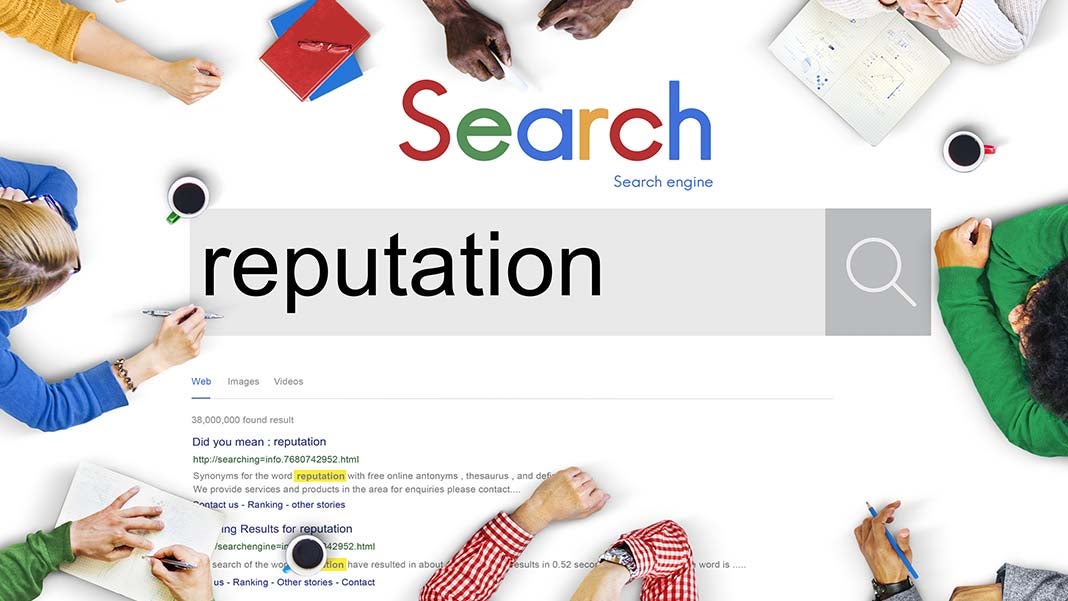
How do you know if your organization’s brand reputation is a good one? Have you ever evaluated it?
Your brand reputation is determined by how your market segments (audiences) perceive your organization. Those with strong brand reputations typically share the following characteristics*:
- Trustworthy
- Honest
- Transparent
- Open to improvement
- Ethical
- Respectful
- Law-abiding
*From Beyond Your Logo: 7 Brand Ideas That Matter Most For Small Business Success, ©Compass Press, 2015
For small-medium businesses and nonprofit organizations that have budget constraints, hiring an external consultant to evaluate their brand isn’t always manageable. But, conducting a DIY assessment is certainly feasible.
What will a brand reputation analysis accomplish?
Since, your brand represents every touchpoint in your organization, it’s important to learn if there are gaps that require fixing. Until you do the due diligence, you don’t know what you don’t know. One thing that marketing research teaches us is not to make assumptions.
The first thing to do is to identify your major internal and external market segments (audiences). You can always expand on this later.
- Customers
- Employees
- Vendors/Suppliers
Many smaller organizations tend to focus exclusively on their external customers. Depending on your marketing vertical, these “customers” can include a variety of individuals and businesses.
Examples:
- Clients (B2B and B2C)
- Congregants
- Consumers
- Donors/Volunteers
- Guests
- Passengers
- Patients
- Students/Teachers
- Taxpayers
- Users
Customers
This target audience is a good place to begin. There are several low-cost methods to monitor customer brand perceptions and feedback. Here are some options:
- One of the least costly ways to find out what others are saying about your company is by using Google Alerts. You can set up alerts for a variety of names and keywords, such as your organization name and any of its variations, the names of the business owner (or board of directors) and employees who are posting company content, and product or service names. Google can send you daily or weekly alerts, or as they happen. I personally find them very effective.
- A free tool called HowSociable allows you to track 12 social media accounts.
- Likealyzer is a tool that monitors Facebook pages.
- Twitonomy enables you to monitor Twitter users, lists, and keywords for free.
- Followerwonk offers a free account for searching, analyzing, and optimizing your Twitter followers.
- TweetReach, offered free by Union Metrics, gives you a snapshot report with quick analytics on recent Twitter activity around a hashtag, keyword, or account.
- Agorapulse offers some free tools such as its Facebook Barometer and Twitter Report Card.
- Tailwind offers low-priced Instagram and Pinterest monitoring tools.
- Rankur offers a free account for one user with two social profiles.
- I also recommend browsing business review sites such as Citysearch, Consumer Search, Google My Business, Insider Pages, com, Sitejabber, Yahoo Small Business Localworks, and Yelp. Most of these sites cater to consumers while Manta includes B2B company reviews.
- Realreviews uses AI evaluations to offer independent assessments of companies. Their algorithms “analyze multiple factors to deliver objective evaluations, allowing users to make informed decisions based on reliable data.”
(If you’re in the healthcare industry, there are specific reputation management tools available such as Healthgrades and ZocDoc.)
Other ways to monitor your customers include:
- Telephone IDIs (in-depth interviews)
- Brand awareness surveys
- Focus groups
Employees
No matter the size of your organization, it’s healthy and beneficial to conduct research with employees. They are often the first brand touchpoint in the customer journey and can make or break customers’ brand experiences.
Depending on the number of workers you have, you can solicit feedback in sit-down meetings, surveys, or through specific software or applications designed for this purpose. You may also want to keep an eye on external employer review sites such as Glassdoor or kununu although a recent kununu study, reported by HR Technologist, cautions employers about these sites.
“External employer review sites accurately share what the internal culture of a company is like. However, these external reviews have a consistent negative bias of more than half a star. The takeaway is that companies should not dismiss the opinions that are being shared by current and former employees and need to listen to the comments, as well as have the plan in place to actively manage internal culture and prioritize the changes that are needed. With this information, it’s clear that employer reviews sites need to make an effort to eliminate the gap in bias by providing accurate, transparent information.”
Vendors/Suppliers
There aren’t many resources available on researching vendor brand perceptions. But, think about it. If you pay your bills late, treat suppliers shabbily, or take advantage of your relationship with them, they’re not going to speak highly of your organization. And, you don’t want them bad-mouthing your brand.
The challenge in measuring your reputation with this segment is that their priority is to keep you as a customer, not give you honest feedback, unless you have a special relationship. In this case, I’d use an external survey which provides data results in the aggregate, allowing respondents to remain anonymous.
One thing to remember with surveys, interviews, and focus groups: you’ll need to offer incentives to increase response rates. Here are some informative articles on incentives:
- 10 Affordable Survey Incentive Ideas that Boost Response Rates
- Using Survey Incentives to Improve Response Rates
- Practical guide for survey incentives
Building and maintaining a strong brand reputation takes a holistic approach to branding. When you have a strong brand, your organization benefits in many ways.*
- Increased visibility
- Ability to attract and retain loyal customers and employees
- Differentiation in a crowded marketplace
- Increased credibility and legitimacy
- Emotional connections with your brand
- Ability to form and maintain long-term relationships
- Reduced risk
- Increased business value
- Growth and increased revenue
* From Beyond Your Logo: 7 Brand Ideas That Matter Most For Small Business Success, ©Compass Press, 2015
As your organization grows, you may want gauge your brand reputation with additional segments such as influencers, referral sources, and other stakeholders. Then, when you’ve built confidence in the process, expand to a full brand audit!
The Brand Audit: How to Measure Your Brand’s Performance
Has your small-medium business or nonprofit organization measured its brand reputation? Do you have any suggestions to add?












